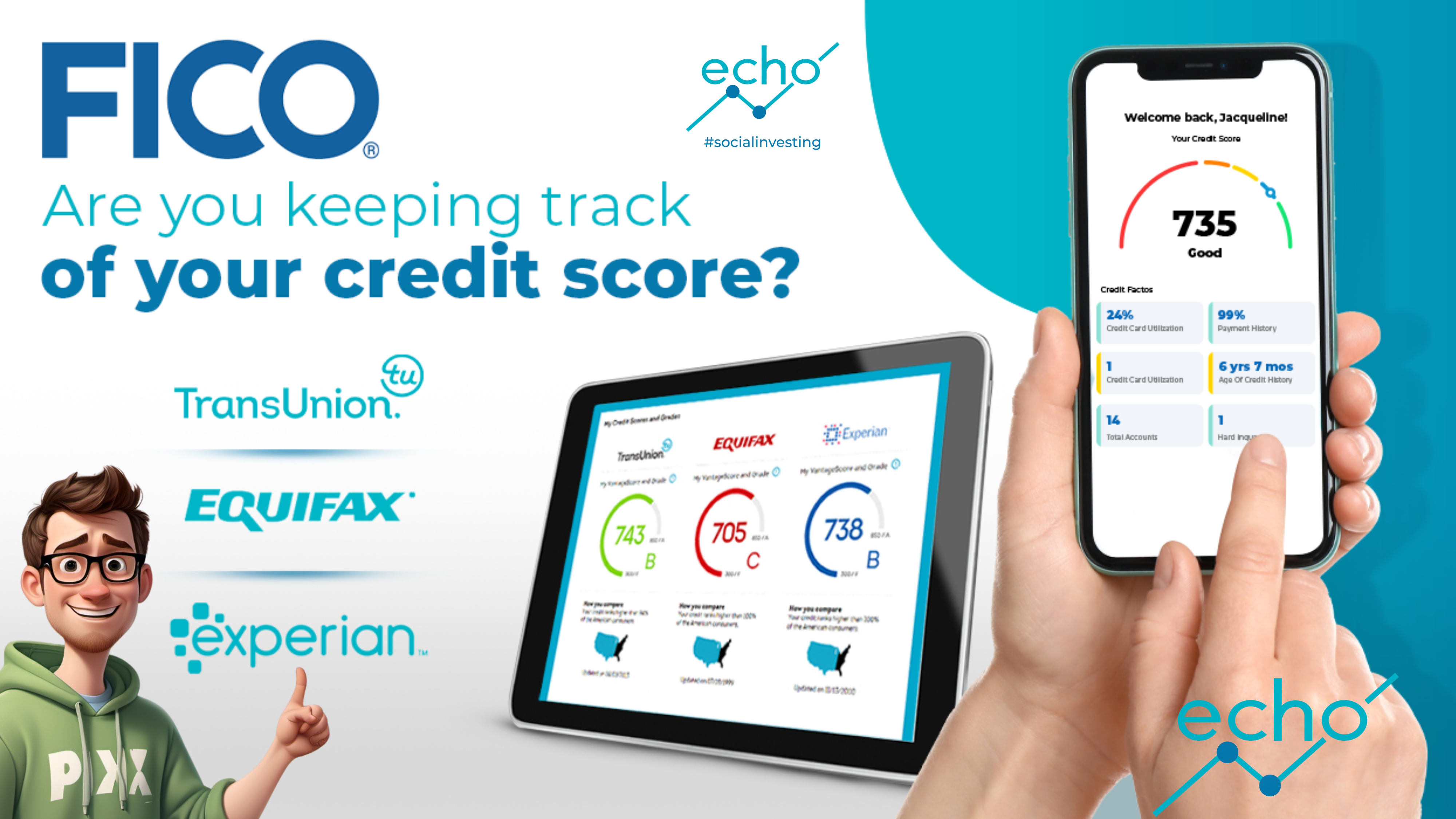
Understanding FICO Scores: How They Impact Your Financial
Success
Your FICO score is one of the most important numbers
in your financial life. It determines your ability to qualify for loans,
secure low-interest rates, and build financial stability. Whether you're
applying for a mortgage, auto loan, credit card, or even renting an
apartment, your FICO score plays a critical role in your financial
opportunities.
In this blog, we’ll cover:
✔ What a FICO score is and how it’s calculated
✔ Why your credit score matters for financial
success
✔ How FICO scores affect loans, interest rates,
and credit approvals
✔ Strategies to improve your credit score and
maximize financial growth
What Is a FICO Score?
A FICO score is a three-digit credit score
created by the Fair Isaac Corporation (FICO) to measure your creditworthiness.
Lenders use it to assess your ability to repay debt responsibly.
FICO Score Ranges:
✔ Exceptional (800 – 850)
– Best rates & loan approvals
✔ Very Good (740 – 799) – Strong credit with
good interest rates
✔ Good (670 – 739) – Average credit, may
qualify for decent rates
✔ Fair (580 – 669) – Higher interest rates,
fewer loan approvals
✔ Poor (300 – 579) – Limited borrowing
options, high risk
???? The higher your FICO
score, the lower your borrowing costs and better financial opportunities!
How Is Your FICO Score Calculated?
Your FICO score is based on five key credit
factors, each affecting your score differently:
1. Payment History (35%)
✔ Late payments, bankruptcies,
or defaults negatively impact your score.
✔ On-time payments help build a strong credit
profile.
???? Tip: Set up automatic
payments to avoid missed due dates.
2. Credit Utilization (30%)
✔ This measures how much of your
available credit you're using.
✔ Keeping your credit utilization below 30%
improves your score.
???? Example: If you
have a $10,000 credit limit, try to keep your balance below $3,000.
3. Length of Credit History (15%)
✔ The longer you’ve had credit
accounts open, the better.
✔ Older accounts with positive payment history boost
your creditworthiness.
???? Tip: Avoid
closing old credit cards, as they help extend your credit history.
4. New Credit Inquiries (10%)
✔ Applying for too many loans or
credit cards in a short period lowers your score.
✔ Hard inquiries stay on your credit report for up
to two years.
???? Tip: Space out credit
applications to minimize score impact.
5. Credit Mix (10%)
✔ Having a variety of credit
types (credit cards, auto loans, mortgages) improves your score.
✔ A healthy mix of installment and revolving
credit shows financial responsibility.
???? Tip: Avoid
relying only on one type of credit—diversify your credit accounts over time.
How Your FICO Score Impacts Your Financial Success
A high FICO score opens doors to better financial
opportunities, while a low score can cost you thousands in interest
payments.
1. Interest Rates on Loans & Credit Cards
✔ Higher credit scores qualify
for lower interest rates, saving you money.
✔ A low FICO score means higher borrowing costs
and limited access to prime loans.
???? Example:
2. Mortgage & Auto Loan Approvals
✔ Lenders use FICO scores
to determine if you qualify for a home or car loan.
✔ A low score may result in a higher down payment
requirement or loan denial.
???? Tip: Check your
FICO score before applying for a mortgage or auto loan to avoid
surprises.
3. Credit Card Limits & Rewards
✔ Higher FICO scores qualify for
higher credit limits and premium rewards cards.
✔ Lower scores may result in lower limits and higher
annual fees.
???? Tip: Use responsible
credit habits to build a strong credit profile and access top-tier cards
with cashback, travel perks, and low APRs.
4. Renting an Apartment or Getting a Job
✔ Many landlords check
FICO scores to assess rental risk.
✔ Some employers consider credit history for financially
sensitive jobs.
???? Tip: If your
credit score is low, offer to pay a larger security deposit when
renting.
5. Business Loans & Financial Independence
✔ Entrepreneurs with high FICO
scores have better chances of securing business funding.
✔ Good credit history leads to lower business loan
interest rates.
???? Tip: Separate personal
and business credit to strengthen financial credibility.
How to Improve Your FICO Score for Financial Success
✅ 1. Pay Bills on Time –
Your payment history is the biggest factor, so set up automatic
payments.
✅
2. Keep Credit Utilization Low – Aim to use less than 30% of your
credit limit.
✅
3. Avoid Too Many Hard Inquiries – Only apply for new credit when
necessary.
✅
4. Don’t Close Old Accounts – Long credit history boosts your score.
✅
5. Check Your Credit Report Regularly – Dispute any errors with
credit bureaus (Experian, Equifax, TransUnion).
???? Pro Tip: Use a secured
credit card or become an authorized user on someone else’s account
to build credit faster.
Invite Friends & Colleagues
Post On